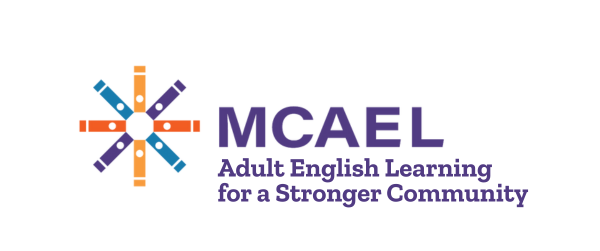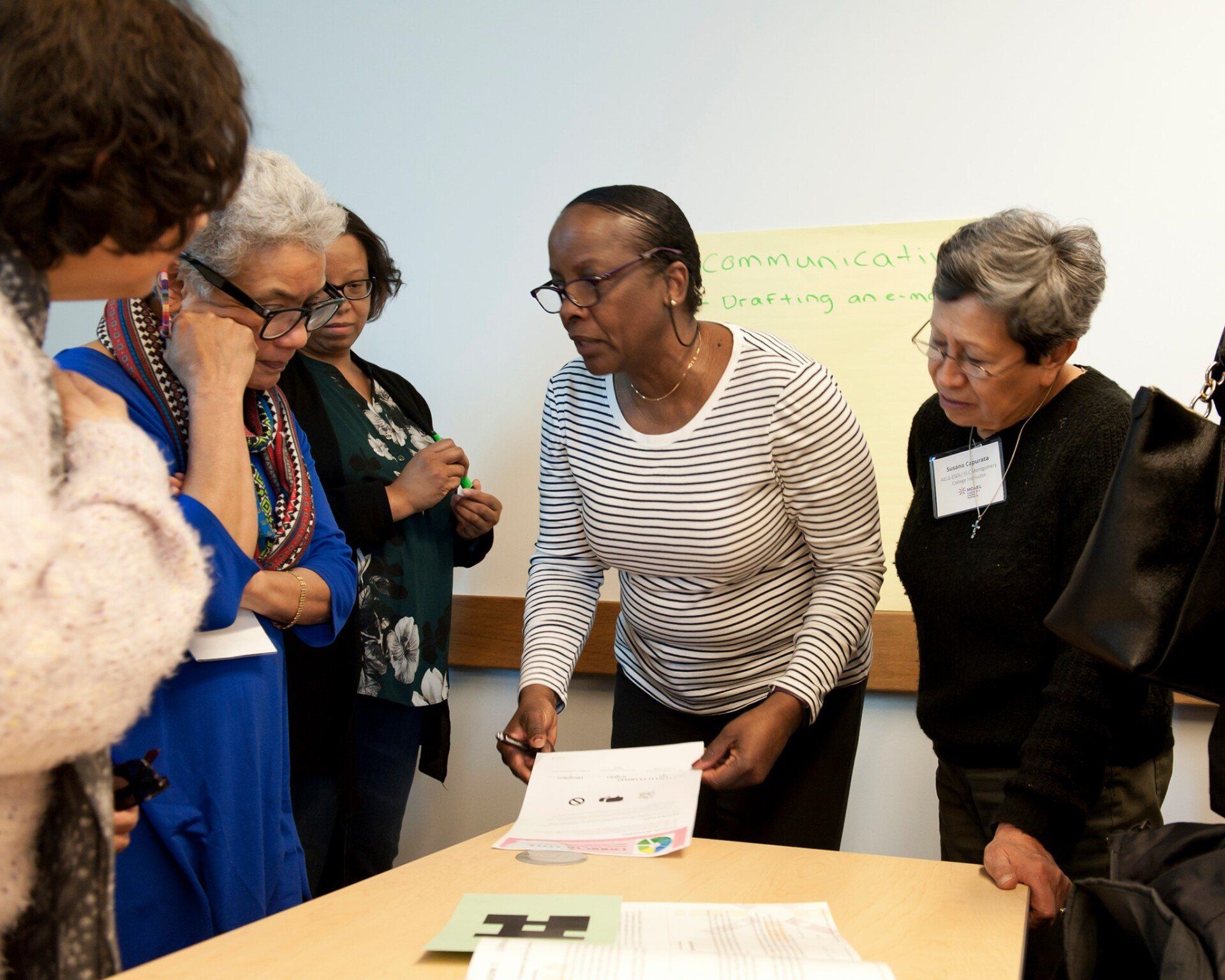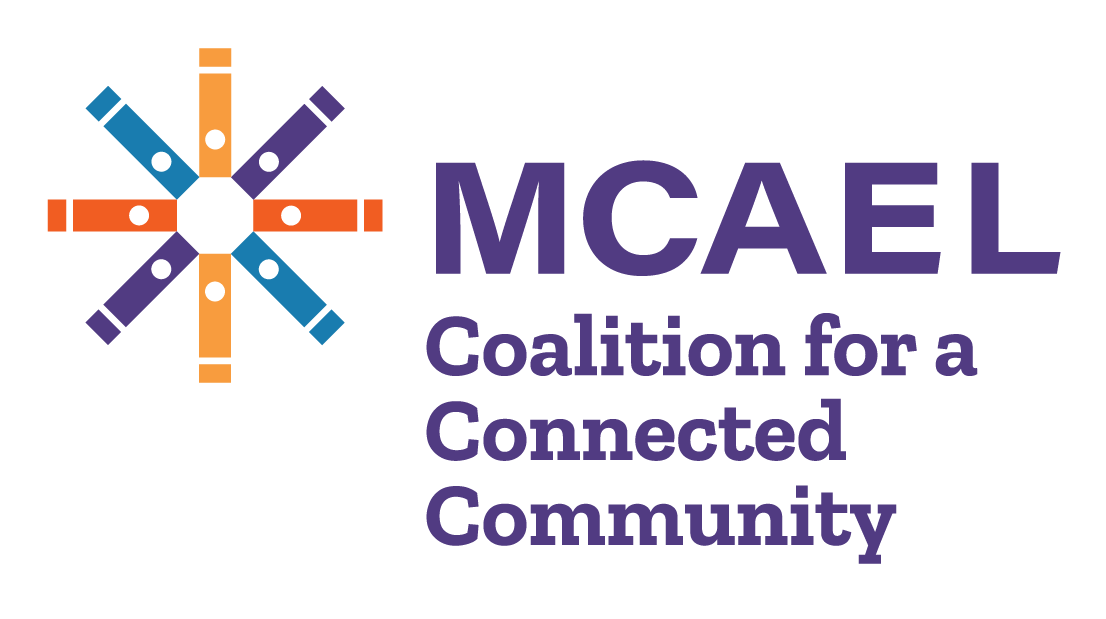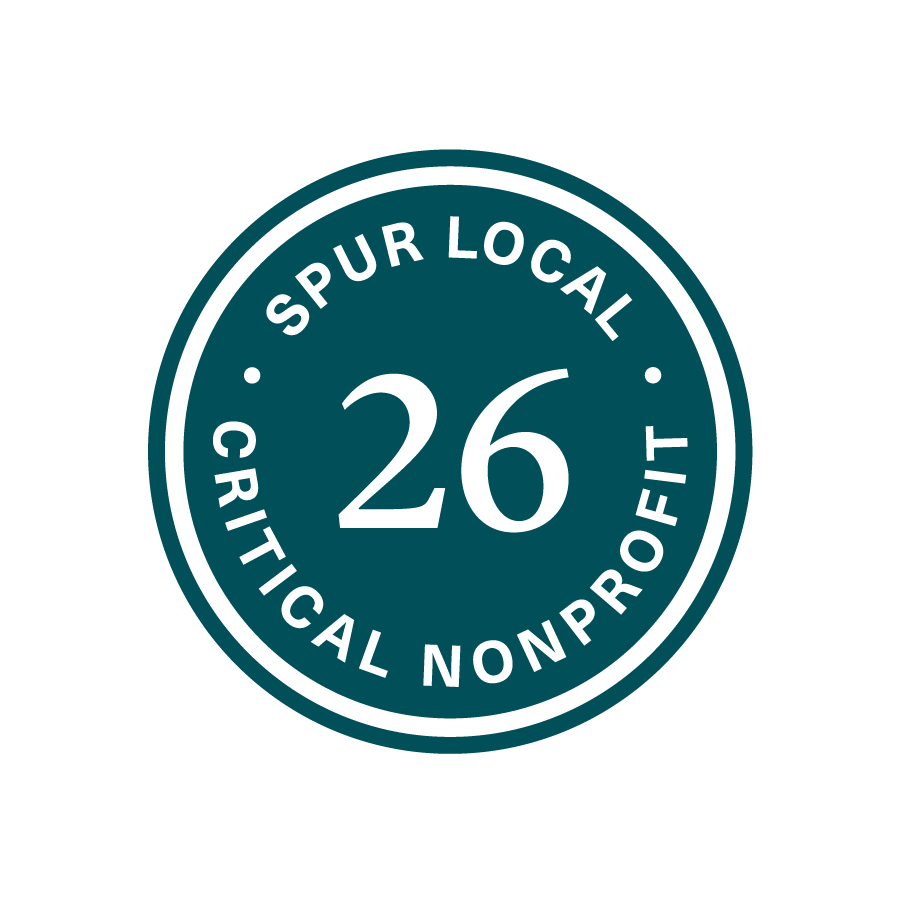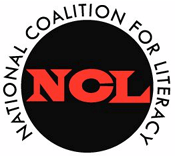We share our coalition's common goal with a network of providers, instructors, and learners.
The MCAEL Coalition
In a professional context, MCAEL is one of more than 117 literacy coalitions in the United States. Coalitions range from national and regional to local. Literacy Powerline, an organization that supports coalitions, has defined a progression model for literacy coalitions that shows how they assist communities to move from disconnected organizations working in silos to a comprehensive network of organizations working together on a common goal. MCAEL is staffed by a team of ten who support the coalition of nearly 60 providers in Montgomery County.
Our common goal
Adult education ESL programs are those programs in the United States that serve adults whose first language (L1) is not English. The primary objective of these programs is to enable adult learners who are not fully fluent and literate in English to become competent in communicating in English. This includes acquiring listening and speaking skills and the ability to read and write in English. These programs are designed to help these adults learn these skills so that they can meet their personal, vocational, academic, community, and employment goals. (TESOL Task Force on Adult Education Program Standards, 2002)
ESOL network
MCAEL supports a diverse network of literacy organizations. MCAEL’s primary stakeholders are ESOL provider organizations/programs and the staff/instructors.
Providers, Instructors and Learners are part of MCAEL's success
Coalition Success
Since MCAEL began, there has been a shift in how programs operate, specifically for grantee programs. Because MCAEL emphasizes the use of TESOL standards as a guideline for program structure and outcomes, programs have incrementally improved their structure utilizing these standards and have incorporated many of the core program components into their English programs. For instance, several programs moved from drop-in classes to classes where attendance is tracked and learning gains monitored (managed enrollment).
Funding
MCAEL is unique in the amount of support that the local Montgomery County government has provided to the organization. As the funding arm for the county we are thankful for the support and partnership we have with our local government.
See more about Coalition Building here.
Program Administrators
Some have the sole purpose of language education, while others are social service organizations (providing wrap-around services such as food, clothing and shelter). Some programs are housed in senior centers, faith-based organizations, businesses and governments.
Instructors
The staff and ESOL instructors in these programs are key to the delivery of adult ESOL services. Quality program infrastructure and well trained instructors create classes where students can accomplish learning gains and meet their goals.
Learners
For many who immigrate to the United States, learning English is often viewed as the cornerstone of creating a better life for themselves and for their families. The years-long challenge of gaining English proficiency, however, is a daunting task for many.
